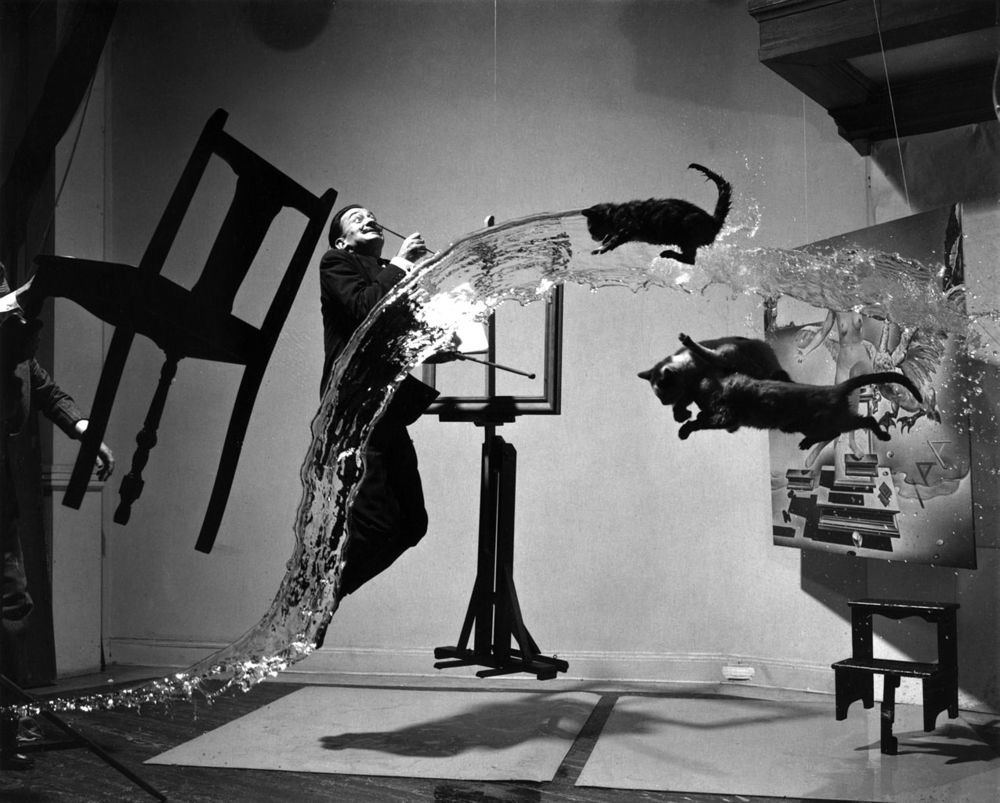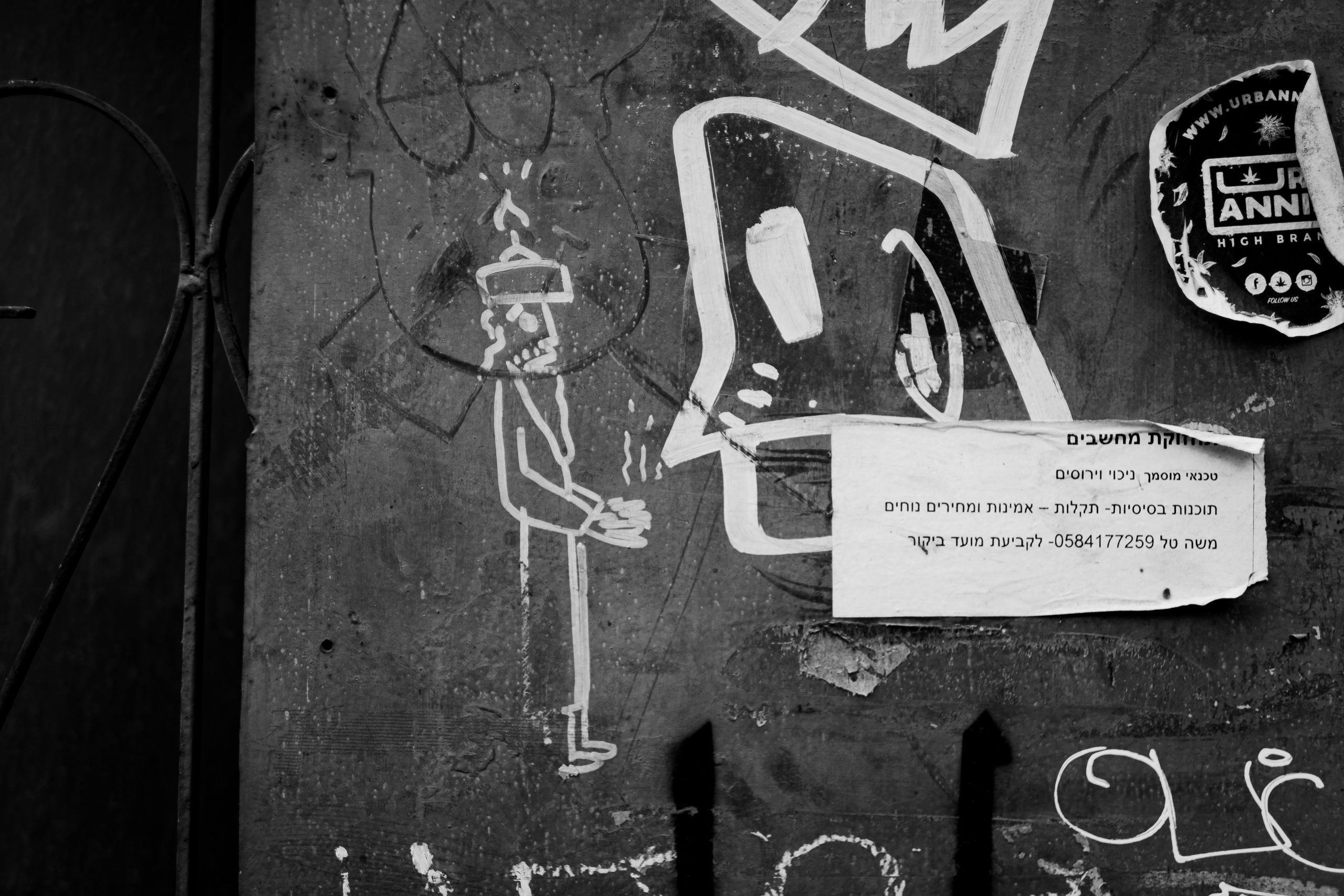Becoming Friends with Prayer
When I was in first grade, I received my first siddur. Like many my age, it was the classic blue Shilo Siddur. I still remember that there’s a typo in the Avinu Malkeinu prayer where it mistakenly has a beis instead of a chof rendering it “Avinu Malbeinu.” I grew up with that siddur. But when I first received the siddur and began learning how to daven, it did not come naturally to me. I was a fidgety child (I am now a fidgety adult), and sitting through such long prayers felt daunting. In particular, Ashrei, Psalm 145, felt downright Sisyphean. How was I supposed to finish this?
I remember I came home and complained to my mother. “I hate Ashrei,” I told her. And she responded with something I still think about today. She put me on her lap and said, “Let’s help you become friends with Ashrei.”
How do we become friends with prayer?
The Hard Problem of Prayer
In studies on consciousness, there is a distinction between the hard problem and the easy problem of consciousness–neither of which is actually easy. The easy problem is figuring out which parts of the brain correlate to different conscious experiences. This, of course, is not easy. But it’s not the hard problem.
The hard problem of consciousness asks why we experience consciousness at all. Why, do we, as material beings—the same, according to mainstream science, as a table or a fork—have this inner subjective feeling of being alive? Science has still not developed a language to even describe let alone explain the need for this sensation. As Phillip Goff explains in his book Galileo’s Error, our reliance on scientific description has pushed the subjective experience of consciousness off to the sidelines. It’s almost unexplainable.
Prayer also has a hard problem and an easy problem—neither of which is actually easy. The easy problem of prayer is figuring out the laws of prayer, addressing decorum issues in synagogue (Are we shushing too much or too little?). Pulpit rabbis, shul presidents, and gabbais occupy themselves with this important question. There is another problem, however, a more essential issue: Why do we pray? What are we trying to accomplish? The Maharal in the Netiv Avodah phrases it this way:
ויש שואלין על התפלה, אם ראוי האדם שיתן השם יתברך אליו הדבר שהוא מתפלל למה לא יתן אליו בלא תפלה, ואם אין ראוי אליו אם כן אף אם יתפלל ויבקש וכי בשביל תפלתו יתן אליו. ועוד הקשו כי למה צריך להתפלל בדבור והרי השם יתברך יודע מחשבות בני אדם ודי היה במחשבה
And there are those who regarding prayer: If a person is worthy that God should grant their requests, then why would God not grant this person’s request even without prayer? And if they are not worthy, then even if they were to pray and make his request, would God really grant this request simply because they prayed? And they asked further: Why do we have to pray by mouthing words, is it not so that God knows all our thoughts, and should it not be enough that we think those thoughts (Second Chapter)?
This is the hard problem of prayer: What exactly are we doing here?
Modernity has compounded this question. There was a time when the only path to salvation in this world was through prayer. Illnesses and material well-being were explicitly experienced as being either divine punishment or divine reward. And while that may still be true (and some may still find it natural to relate to prayer in that way), it has certainly become harder.
The sociologist Max Weber describes how modernity disenchanted the world. What used to be seen as mystical or divine has been reduced to science. Similarly, Professor Haym Soloveitchik laments how this has affected our relationship with prayer itself. In his article, “Rupture and Reconstruction: The Transformation of Contemporary Orthodoxy,” he writes:
With the shrinkage of God’s palpable hand in human affairs has come a marked loss of His immediate presence, with its primal fear and nurturing comfort. With this distancing, the religious world has been irrevocably separated from the spirituality of its fathers, indeed, from the religious mood of intimate anthropomorphism that had cut across all the religious divides of the Old World.
There is a nagging feeling, he expressed in the article, that modernity has made it harder, less instinctive, to pray. Sneezes, headaches, and difficulty feel less intuitively like divine intervention when we have so many rational, medical, and scientific explanations with which we’ve already been indoctrinated. What is left for sincere instinctive prayer to do?
Reclaiming Our Humanity
I’ve quoted many times from the introduction to Irvin Yalom’s Love’s Executioner and Other Tales of Psychotherapy. It is a profound reflection on what makes us human. The introduction opens with a group exercise:
Imagine this scene: three to four hundred people, strangers to each other, are told to pair up and ask their partner one single question, “What do you want?” over and over again.
Could anything be simpler? One innocent question and its answer. And yet, time after time, I have seen this group exercise evoke unexpectedly powerful feelings. Often, within minutes, the room rocks with emotion. Men and women–and these are by no means desperate or needy but successful, well-functioning, well-dressed, people who glitter as they walk–are stirred to their depths. They call out to those who are forever lost–dead or absent parents, spouses, children, friends: “I want to see you again.” “I want your love.” “I want to know you’re proud of me.” “I want you to know I love you and how sorry I am I never told you.” “I want you back–I am so lonely.” I want the childhood I never had.” “I want to be healthy–to be young again. I want to be loved, to be respected. I want my life to mean something. I want to accomplish something. I want to matter, to be important, to be remembered.”
This, I believe, is the underlying value of prayer: the daily opportunity to articulate our needs and wants before the Master of the World.
Why is this important?
I think prayer is much more and quite different than a daily visit to the slots in hopes that your needs and wants will be fulfilled. I think there is an inherent value in exploring your vulnerabilities before God. Prayer transforms us from objects to subjects. Returning back to the hard problem of consciousness, I think that, in many ways, it and prayer intersect. Most of our day is spent on daily responsibilities, the grind, the hustle, the monotony of everyday life. We can sometimes devolve into a materialist conception of ourselves—just blobs in the universe chasing after stimuli. Prayer is what differentiates us as human beings. We spend so much of our lives trying to keep apace with technology, prayer is a reminder that our greatest advantage is actually our vulnerability. Paying attention to our own inner worlds and lives—What do you want?—is an affirmation and reclamation of our humanity. Prayer, in a sense, is our Turing test.
Becoming Friends With Our Thoughts
I once had a panic attack at an airport. Like a real panic attack. It was Erev Yom Kippur and I was flying to Omaha, Nebraska to run a High Holidays service. True story. I had every reason to be nervous, and I just broke down as I waited to be checked in and began to cry. My life felt unhinged, untethered. The therapist I was seeing at the time, Dr. Mark Roberts, had taught me the basics of meditation. I read more in the books of Pema Chodron, The Wisdom of No Escape and the aptly titled, How to Meditate.
I don’t pay much attention to contemporary mindfulness trends, but I saw the power of sincere prayer in that airport. Mindfulness practice in its most basic form teaches you how not to be so reactive to your own thoughts. You focus on your breath, and every time your mind wanders, you simply notice that it has wandered and then return, without judgment, to your breath. How does this help? Normally you have a thought—I’m inadequate, I’m alone, I’m a failure—and immediately you begin to sweat, unfold, and fall apart. But when you allow yourself to have such vulnerable thoughts and instead return to your breath, it teaches you how to react in healthy ways to your own wants, needs, and desires. In the words of Pema Chodron, it teaches you how to become friends with your own thoughts.
And that brings us back to Ashrei and my mother’s lap.
When my mother told me she would teach me how to become friends with Ashrei, I didn’t know it at the time, but that would be an enduring lens for prayer itself. Prayer and meditation are similar in many ways. I don’t find that problematic—prayer predates Sinai; its roots predate organized religion. But prayer is also different from meditation. Instead of returning to my breath, I return to the standard text of prayer. As I pray, my mind wanders, my anxieties fester, and then I return to Ashrei or Shemonah Esrei. In this sense, I actually think there is a spiritual value to spacing out during davening and then noticing and without judgment returning to the text. And the biggest difference, of course, is that prayer is before God. It must be.
Prayer itself is the rebellion against a materialist conception of life and the world. I am not just an object—my vulnerabilities, faults, insecurities, and shortcomings are not bugs in my humanity, but features. And bringing your complete self and using the words of prayer as a window for all that you experience in your own subjective life is the means through which we transform ourselves from objects to subjects. We restore the dignity in ourselves however imperfect we may be. Lincoln once said a quote that I love, “I have been driven many times upon my knees by the overwhelming conviction that I had nowhere else to go.” This is the instinctive prayer I strive towards—the knowledge that my life, however chaotic it may seem, is being seen. My inner voice isn’t some quirk of the universe, but has religious dignity and value. That I, and the divine within me, can be friends. And what else could anyone really want?





































